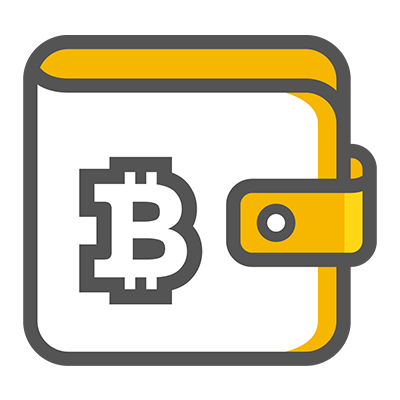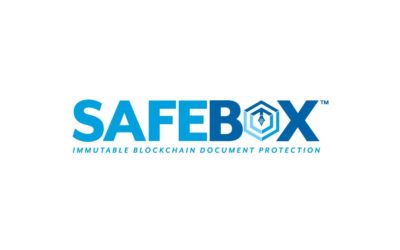5 Ways Blockchain technology is transforming the signing agent’s work
The blockchain’s primary features have proved to be a great asset in improving the signing agent capabilities. With the help of blockchain technology, a signing agent can do most of the work remotely. Blockchain technology has transformed the signing agent’s work in many ways. The top five ways in which blockchain technology is changing the signing agent’s job are:
Reduces the need to meet in Person
Generally, the notarization process requires the physical presence of the involved parties. The physical presence helps the signing agent to confirm or verify the identities of the signatory parties. However, there can be cases where the parties can’t be present physically. This is one such place where blockchain technology can significantly help. Blockchain provides a private key to the parties to verify their identities, thus, eliminating the need for physical presence. The private key can be used as a digital signature for the signed document.

Proof of Existence
Blockchain technology adds significant value to the notarization process. It makes the document tamper-proof by making the document secure, immutable as well as transparent. It can provide proof of record that exists in the form of its creation time to the time of any modification to the document. Any new entry is added on top of the old record as a new transaction record. This will not replace any early entry, thereby making it easy for everyone to track changes.
All the blocks on the blockchain are interlinked; therefore, any change to the document can be easily detected.
Proof of Ownership
Blockchain works using the keys. Anyone with a valid key can access the blockchain documents. The private key and transaction ID both can prove the document ownership. If anyone with an invalid key tries to make any change in the document, it will immediately remove the records turning to its original state. This can be very important for the notary public.
Many notary services today first requires a user account or login account creation. A map between the transaction ID and the user ID is kept in a database after the account is setup. With this database, the service providers can tell who owns the document based on the transaction ID—thereby providing the proof of ownership.


Secured storage with proper timestamps
Blockchains stores the documents at multiple locations rather than storing them at a single location. The immutability feature of the blockchain makes it difficult to change or edit the records without noticing it. Blockchain stores the information in interlinked blocks having timestamps and block numbers. Therefore, the signing agent can always chronologically trace all information. No single entity controls a blockchain; instead, a centralized system manages blockchain. As a result, it becomes an extremely secure way of storing notarized documents.
Using smart contracts
Blockchain uses smart contracts to set up, store, and timestamp the documents since the signing agent mainly deals with contracts and agreements. Smart contracts provide tools for efficiently managing tokenized assets and access rights between two or more parties. They effectively control the agreement between two parties by storing all the details, agreed conditions, and any old versions of the documents.
SAFEBOX allows the notaries to upload, and share the documents anywhere and at any time. A notary public can easily upload the document and maintain a proper timestamp record, and can quickly share these documents with their clients, with just a click. SAFEBOX combines cloud and blockchain technology, thereby giving its users all the features as mentioned above.
Trending Technologies 2020
What are the two main ways to store a document on the blockchain
Cryptocurrencies such as Bitcoin have shown the use of blockchain technology for different forms of money and currency. Although they store transactions within blocks, we can no doubt extend this data beyond financial data. In theory, we can store any form of data on...
Notary Public: 5 Tips to Increase Productivity
A notary public's job is a complex one. The work involves witnessing and taking care of relevant documents. As there is much paperwork required in this job, taking care of everything can be a little overwhelming. This is where blockchain comes into the picture....
Why do you need MetaMask?
MetaMask is a cryptocurrency wallet that allows you to interact with the Ethereum enabled distributed applications(Dapps) without having the need to run the Ethereum node. It is available as a browser extension that allows smooth interaction between the web...
SAFEBOX Pricing
SAFEBOX makes use of cloud storage and blockchain technology to facilitate the work related to records. Our platform takes care of signing agents, attorneys, medical professionals, title companies, automobile dealers, escrow companies, and many more who need to store...
List of services for which a Notary Public can charge fees?
There are different kinds of policies and regulations for every state regarding the fees of the notaries and services a Notary Public can charge. Some of the common services that notaries can charge for are as follows: Copies Notaries, for fixed fees, can also certify...
Our Latest Updates

Security Issues with Document Sharing Technologies
Today, the corporate world is undergoing a swift change in operations, a feat that has been greatly influenced by technological advances. Employees are using different techniques to transfer important documents to clients and fellow workers. This has revolutionized...
How Can Blockchain Technology Improve Data Storage?
Decentralized Cloud Storage Cloud storage systems maintain data on remote servers that are accessible from the internet. However, unlike conventional cloud servers, decentralized cloud storage does not keep user data on a single centralized server. A decentralized...
What are the two main ways to store a document on the blockchain
Cryptocurrencies such as Bitcoin have shown the use of blockchain technology for different forms of money and currency. Although they store transactions within blocks, we can no doubt extend this data beyond financial data. In theory, we can store any form of data on...







